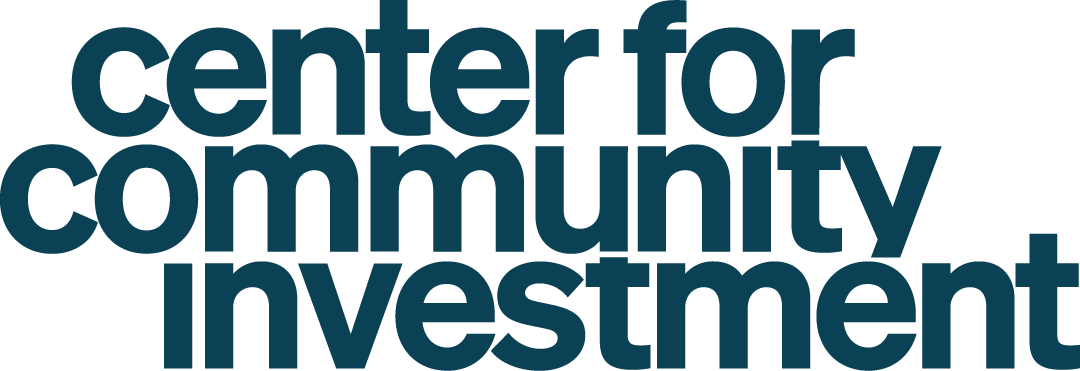Ultimately, creating healthy communities is a team sport.
That was one of the key conclusions of panelists and participants at “From Roadmap to Reality: Implementation Strategies for Upstream Investments in Community Health,” a virtual conference hosted by the Center for Community Investment and Nationwide Children’s Hospital (NCH) on September 22-23.
The event focused on ways to use investment to create more equitable opportunities for good health through improved access to nutritious food, affordable housing, and economic security in disinvested communities. Designed for healthcare institutions, community development groups, affordable housing developers, lenders, and policymakers, the conference addressed those who are newly involved and looking to take their first steps in the field, as well as more experienced groups hoping to deepen their impact.
Panels focused on an array of topics, including putting the community in the driver’s seat, housing as a foundation for health, data and measurement, structural racism, and NCH’s own history as a leader in investing in the community. But across all sessions, speakers explicitly emphasized the importance of collaboration and the challenges and rewards of building diverse partnerships to successfully accomplish this critical work.
CCI’s executive director Robin Hacke set the stage in her opening plenary discussion with NCH CEO Tim Robinson. “This is really a team sport,” she said. “The work is most powerful when it’s embraced by many departments in the hospital, as well as many sectors in the community.”
An early panel echoed that theme with a specific focus on how to engage the local community and ensure that their priorities are heard. Patrice Allen Brady, a project manager with Healthy Homes, a housing nonprofit co-founded by Nationwide, described several of the techniques the group has employed to build trust locally.
The challenges of gaining community trust are significant, said Brady. “In an ideal world, talking about something once might cement the deal. In reality, you have to go 10, 20 times.” But offering home repair grants has yielded an “easy win,” demonstrating to the community that real dollars are being invested in what the community wants.
David Perlstein, president and CEO of SBH Health System in the Bronx agreed that trust is often born out of concrete actions. His hospital has offered vacant lots to build affordable housing, and he said it’s important to get those projects right. “You need to overdeliver on whatever you do.”
In Pittsburgh, UPMC has learned the importance of working through issues incrementally and collaboratively in its partnership with the housing organization Neighborhood Allies. Local community development groups and community-based organizations operate very differently from large, centralized, medical institutions, and they need to learn to understand each other in order to work together effectively. “Trust building was critical, and it took time,” said Matt Madia, Neighborhood Allies’ director of real estate services. But the time and effort has paid off in the thriving collaboration.
A plenary on structural racism examined the powerful role racism plays in health inequities, and how they can be addressed by upstream investments. Dr. Thea James, vice president of mission at Boston Medical Center, Dr. Kelly Kelleher, vice president of community health at Nationwide, and Kendra Smith, vice president of community health at Bon Secours Mercy Health, all said that their institutions gradually worked their way into complex, impactful projects, without originally knowing where they would end up. Buy-in from multiple hospital departments was key; helping in-house stakeholders understand the impact of the social determinants and the case for investing in them is crucial to gaining that buy-in.
“We live in a progressive city, but people don’t necessarily understand root causes,” said James.
Smith agreed that sometimes hospital leaders need a bit of a nudge. “You have to think about how to open the minds of people in your organization to embrace out-of-the-box ideas.”
On the conference’s second day, in a breakout session focused specifically on partnerships with developers and financial institutions, Andrew Spofford, chief of staff at Preservation of Affordable Housing (POAH), a Boston-based affordable housing developer, talked about the organization’s work with Boston Medical Center. “While it’s been relatively smooth, sometimes POAH has had to play diplomat and explain to other housing groups exactly why a healthcare institution is involved,” he said.
At UPMC in Pittsburgh, having a single point of contact at the hospital has facilitated the institution’s interactions with Bridgeway Capital, its CDFI partner. Dawn Seckler, Bridgeway’s director of development, said that “having that advocate—someone who can speak the institution’s language while simultaneously understanding Bridgeway’s objectives—has been essential. We’ve had a very successful partnership to date.”
NCH and CCI will be sharing additional resources from the conference in the weeks to come, in CCI’s newsletter and on a dedicated NCH resource page, where summaries of the plenaries have already been posted. Look for deep dives into NCH’s investment in Columbus as well as videos of the plenaries and breakout sessions.

